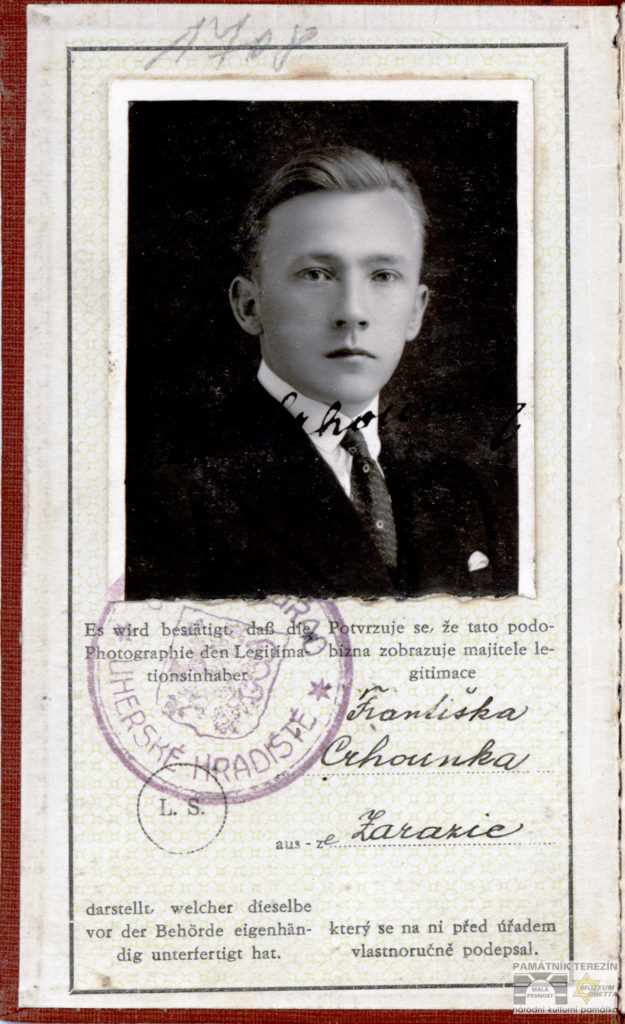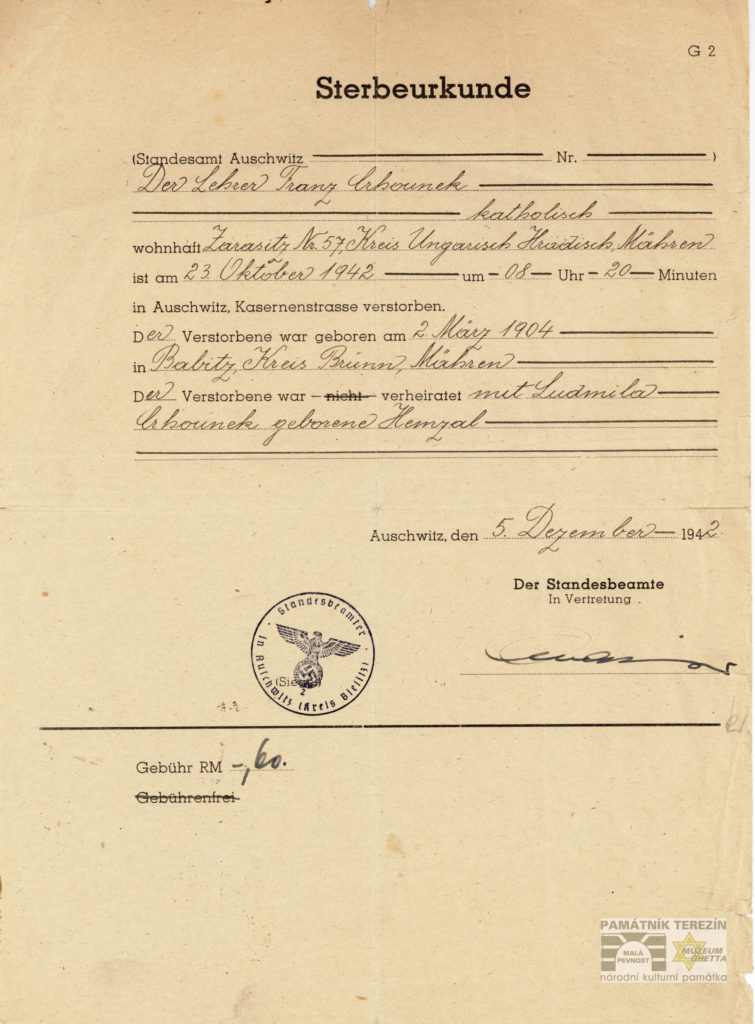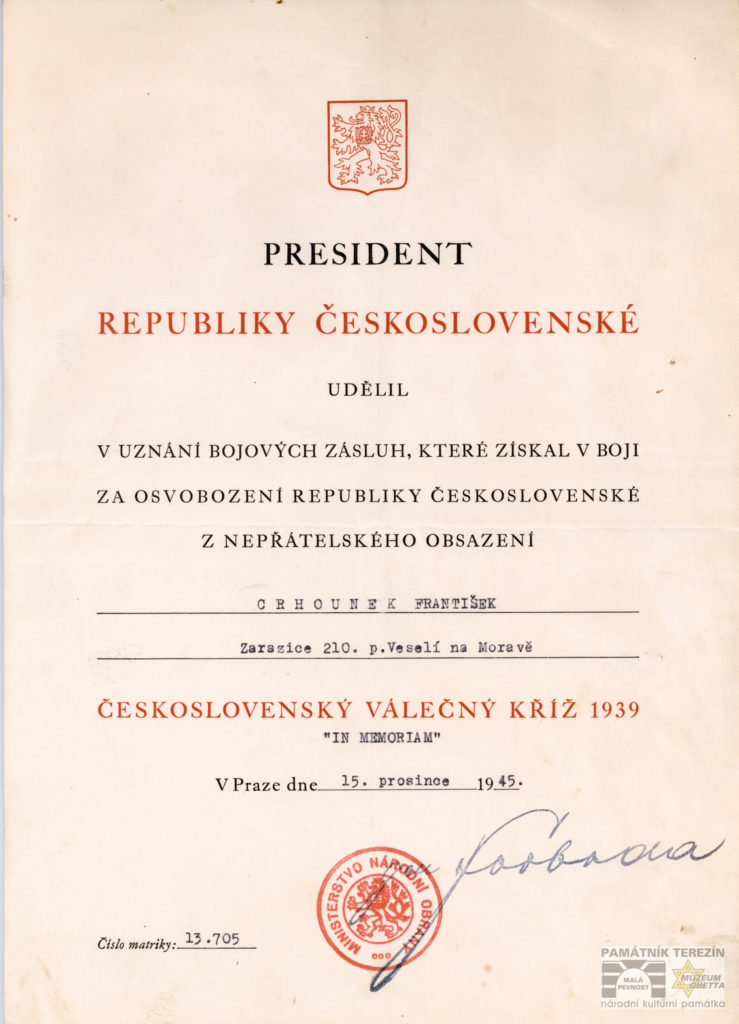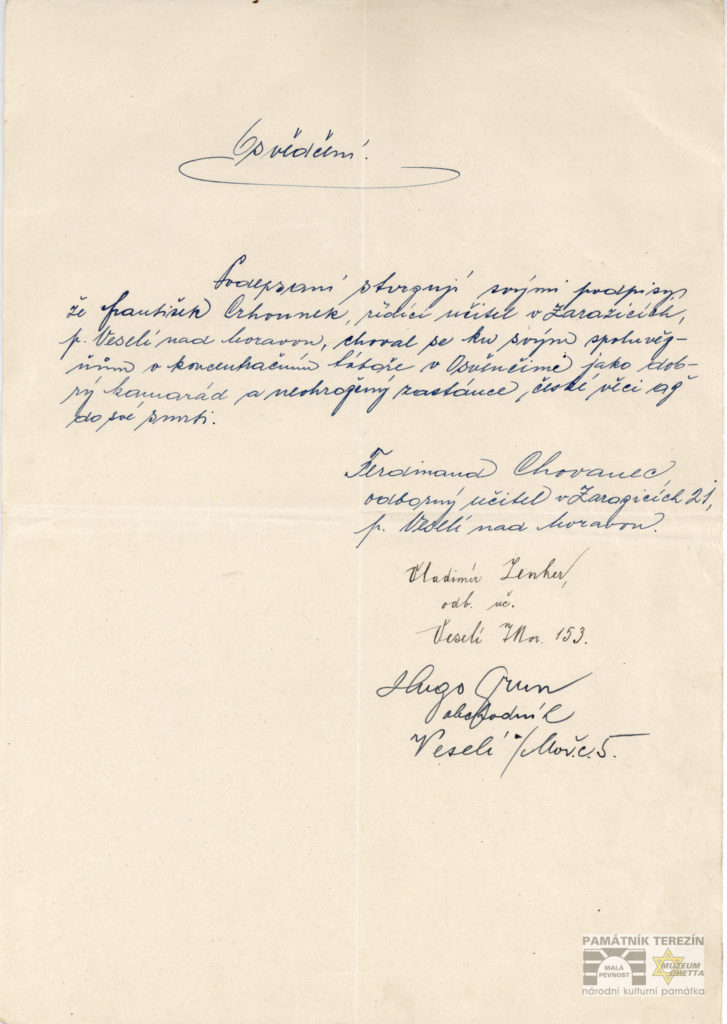In 2018 the Terezín Memorial´s Department of Documentation obtained by gift a total of eighteen written documents and photographs connected with the history of the Gestapo Prison in the Small Fortress Terezín, the Terezín Ghetto and other Nazi persecution facilities. These are various extensive files as well as individual items.

In addition to other acquisitions, the Department has also obtained several documents relating to the fate of František Crhounek, a headmaster at Zarazice (now part of the town of Veselí nad Moravou in the district of Uherské Hradiště).
Born on March 2, 1904, František Crhounek was known as an actor and stage director of an amateur theater in Veselí nad Moravou during the 1930s. The repertoire of the ensemble included such anti-war dramas as, for example, Karel Čapek´s plays RUR and Bílá nemoc (The White Disease). After the establishment of the Protectorate of Bohemia and Moravia the theater, directed by Crhounek, continued its performances, often staging plays encouraging patriotic feelings and mentality in its audiences.
Apart from his engagement in the theater František Crhounek had joined the domestic resistance movement in an underground organization known as The Defense of the Nation, and on June 12, 1942 he was arrested with other teachers in the district and imprisoned in the Kounic Hostels in Brno. He was later deported to the Auschwitz concentration camp where he died on October 23, 1942.

concentration camp, Terezín Memorial, APT, A 7/2018.
Other members of his family were also persecuted by the Nazis – his wife and his daughter were evicted from their apartment and left without any resources. Fortunately they found accommodation in the Všetula family at Zarazice.
One of the newly acquired documents is the death certificate of F. Crhounek issued in Auschwitz on December 5, 1942 and sent to the surviving relatives. No cause of death was mentioned in the certificate. And even if it were, it would have hardly been the truth, as it was quite common for the Nazi concentration camps to conceal the true causes of inmates´ death so that the general public would not suspect how the real situation in the camps looked like. The death certificate actually does not make it clear at all that František Crhounek died in a concentration camp. The place of death just gives: „Auschwitz, Kasernenstrasse“ (Auschwitz, Barracks Street). The fact that it happened in a camp was deliberately omitted. For the purpose of camouflage, an independent registry office was established. This “officially” handled death certificates in the camp, as is evident from a rubber stamp on the document with a copied text: „Standesbeamter in Auschwitz…“ (registrar in Auschwitz). Quite undoubtedly, František Crhounek died in the camp due to its cruel living conditions. The death certificate also gives the deceased´s religion, abode prior to arrest, time of death, date and place of birth, and name of spouse.

As early as at the end of 1945 President Edvard Beneš awarded to František Crhounek a Czechoslovak War Cross 1939 in memoriam for his activities in the resistance movement. The award certificate to the distinction is another document that has been acquired. One of the postwar documents that has also been preserved is, for instance, a certificate written by Crhounek´s fellow prisoners confirming his good conduct towards other inmates in the Auschwitz camp and his patriotic feelings. Even though the certificate is undated it was probably written soon after the war.

The actual likeness of František Crhounek is known from his preserved Protectorate identity card, issued on December 19, 1939 in Uherské Hradiště, which is also part of the donated set of documents.
Ně


